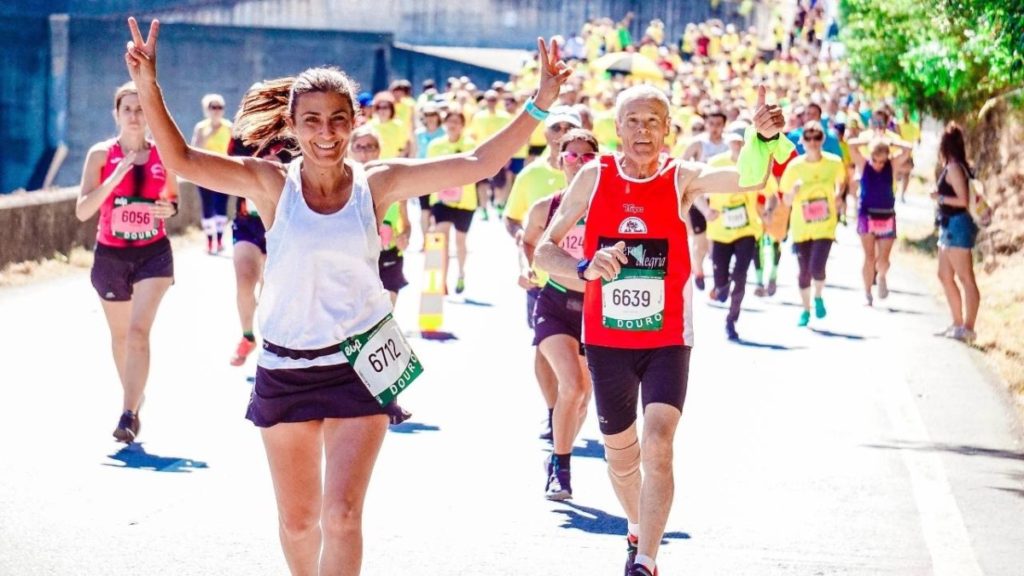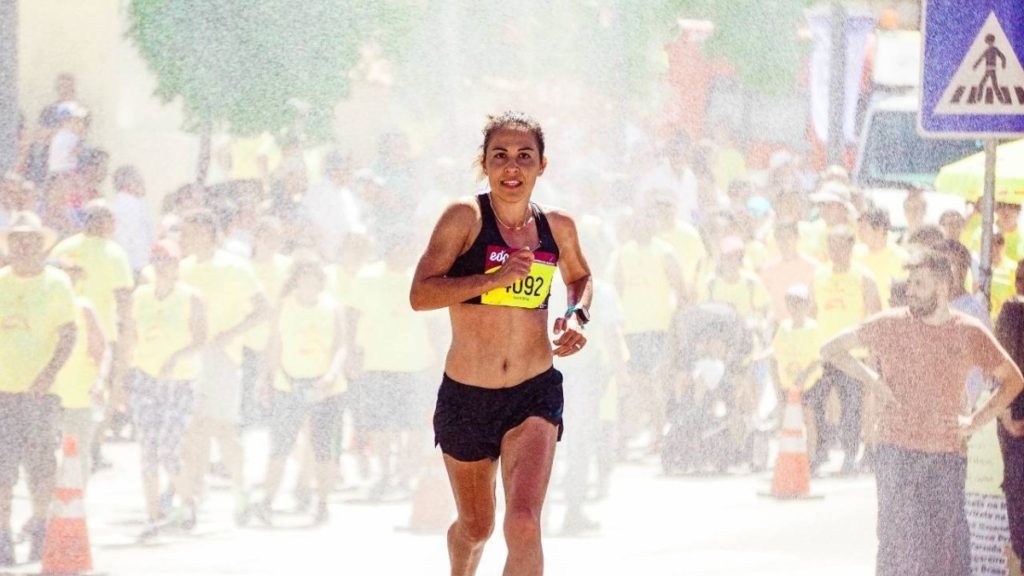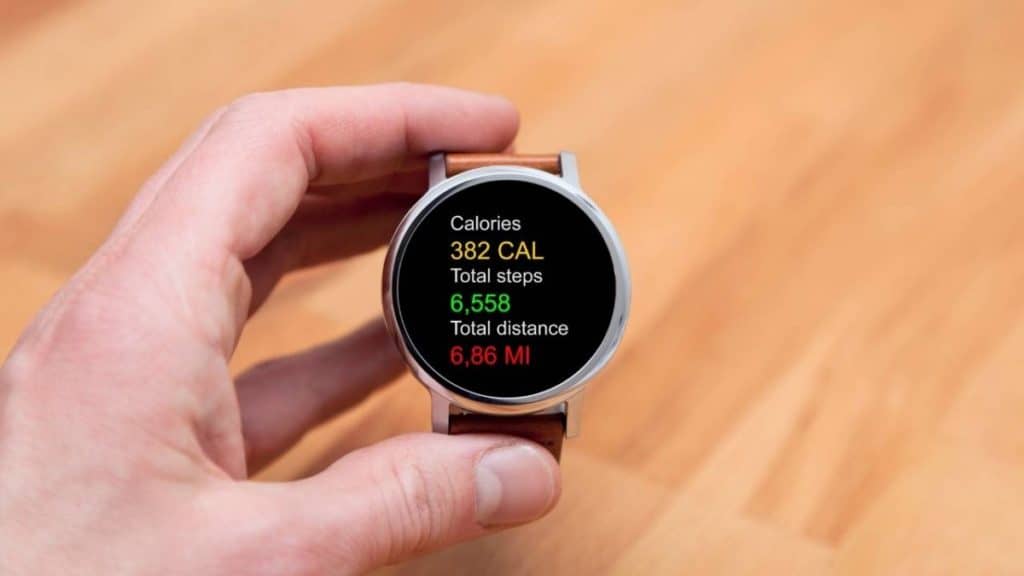
Running 20 kilometres (km), also referred to as a half marathon, is an excellent way to burn calories, keep in shape and lose weight. I would consider running 20km as a medium to long-distance run, and you have probably been running regularly for 3 months or longer. So, understanding how much time this requires will help you devise tangible goals and milestones.
Most people only run a 20km once or twice a year, so this is not an activity that you need to train for every day. Understanding what the average time will give you a target to aim for so that you can complete the race within a comfortable time frame for your age group and gender.
Table of Contents
Average Time to Run 20km

On average, it takes between 2 hours and 3 hours 10 minutes for a reasonably fit adult to run 20km (12.43 miles). For an advanced runner, it’s around 1 hour 30 minutes. The world record for a 20km run is 54 minutes 29 seconds.
However, age, weight, overall fitness and gender will affect this time. For instance, a 25-year-old male will take much less time to run 20km than a woman of 65 years by around 1 hour. Those who weigh more will burn more calories but will tend to take longer to run the 20km because of the extra weight they are carrying.
To complete a 20km run within the average time, you will need to be able to run at a pace of 6 minutes per kilometre (3.72 miles per hour). This is not a very fast pace and can be achieved by most people with some regular training. Most people calculate their 1km time and use this as a guide for long distances.
The average time to run 20km also depends on the terrain. If you’re running on a flat surface, such as a road or a track, you’ll be able to go faster than if you’re running up and downhills. The weather conditions will also affect your time, as wind resistance will slow you down.
Similarly, if you’re running with a friend or in a group competition, you’ll likely go faster than if you’re running on your own. This is because motivation levels tend to be higher when you’re running with others or competing.
20km is also a great training distance for a marathon, with most training plans having this distance at least once a week on your program. Understanding your 20km time is a far better estimate of your marathon time than 1km because you have to use pacing techniques for the marathon, which are different to running a shorter fast 1km or 2km.

Average Time to Run 20km For Males
On average, it takes a male between 2 hours and 2 hours 36 minutes to run 20km. For example, a male that’s aged between 30-35 can expect a time of 2:01 with an average 5:55 1km time. For a male aged 45-50 the time can be around 2 hours 10 minutes with an average 1km time of 6:15.
| Age | Average time to run 20km (males) |
| 65 | 02:36:16 (07:24/km) |
| 60 | 02:28:48 (07:03/km) |
| 55 | 02:22:01 (06:44/km) |
| 50 | 02:15:49 (06:26/km) |
| 45 | 02:10:59 (06:10/km) |
| 40 | 02:04:59 (05:55/km) |
| 35 | 02:01:51 (05:47/km) |
| 30 | 02:01:11 (05:45/km) |
| 25 | 02:01:11 (05:45/km) |
| 20 | 02:01:11 (05:45/km) |
| 15 | 02:05:30 (05:57/km) |
Check out my big running data analytics that contains every running distance by age and gender in a full comparison table for beginners and intermediates. You can compare your average running times against every distance in your age and ability group.

Average Time to Run 20km For Females
On average, it takes a female between 2 hours 31 minutes and 3 hours 10 minutes to run 20km. For example, a female that’s aged between 30-35 can expect a time of 2:19 with an average 1km time of 6:36. For a female aged 45-50 the time can be around 2 hours 34 minutes with an average 1km time of 7:14.
| Age | Average time to run 20km (females) |
| 65 | 03:10:47 (09:03/km) |
| 60 | 02:58:03 (08:26/km) |
| 55 | 02:46:55 (07:55/km) |
| 50 | 02:37:06 (07:27/km) |
| 45 | 02:28:54 (07:03/km) |
| 40 | 02:23:24 (06:48/km) |
| 35 | 02:20:08 (06:39/km) |
| 30 | 02:18:50 (06:35/km) |
| 25 | 02:18:48 (06:35/km) |
| 20 | 02:19:51 (06:38/km) |
| 15 | 02:31:46 (07:12/km) |
Other Running Distances You Might Find Interesting To Know

Can You Run 20km in 1 hour?
The current world record for a 20km is held by Kenyan runner Eliud Kipchoge with a time of 58 minutes and 18 seconds. The average finishing time for professional men in competitive races is 1:06:30, while the average for women is 1:21:49. So, while it’s possible to run 20km in an hour, the average runner won’t be able to do it.
The average pace you would need to run at to run under 1 hour is 4:39 per km, which is a speed of 13.2 km/h. This is a very difficult pace to maintain for 20km and is only achievable by professional runners. The average person would need to train extensively to be able to run at this pace for the entire race and would still struggle to reach it.

How Many Calories Do You Burn Running 20km?
On average, running 20 kilometres will burn approximately 1377 calories. This number will be higher or lower depending on your weight, as calorie burn is relative to body size. So, if you weigh more than 185 pounds, you’ll burn more calories, and if you weigh less, you’ll burn fewer.
The number of calories you burn while running 20km will have everything to do with how much you weigh. The pace at which you run will also influence how many calories you’ll burn within this distance. As you become fitter and more efficient at running you will burn fewer calories. Our bodies adapt very quickly to changes in our energy expenditure and changes our metabolism rates to fit the extra training.
The table below indicates a general estimate of calories you can burn. Because the pace is a huge factor in this, the numbers reflect a rough average of running five minutes per kilometer. Typically, the longer you take to run one kilometer, the more calories you will burn.
| Weight | Calories Burned Running 20km |
| 110 | 1,000 (50 per km) |
| 120 | 1,080 (54 per km) |
| 130 | 1,180 (59 per km) |
| 140 | 1,260 (63 per km) |
| 150 | 1,360 (68 per km) |
| 160 | 1,440 (72 per km) |
| 170 | 1,540 (77 per km) |
| 180 | 1,620 (81 per km) |
| 190 | 1,720 (86 per km) |
| 200 | 1,800 (90 per km) |
| 220 | 2,000 (100 per km) |
| 240 | 2,180 (109 per km) |
| 260 | 2,360 (118 per km) |
| 280 | 2,540 (127 per km) |
| 300 | 2,720 (136 per km) |
What’s the best investment you could make in your running performance? To discover the exact running gear and why it has significantly improved my running, read this post.

Should You Run 20km Every Day?
It’s not recommended to run 20km every day it would be overtraining and could lead to injuries. Instead, focus on quality over quantity. Run three to five times per week with at least one day of rest in between.
While it’s okay to run 20km every day if you are a top athlete or professional, you should only run this distance three or five days out of the week. Even the most experienced and fit runners break for at least a day to let the body rest. However, the pace is important. For some people, it takes 12 minutes to run one kilometre, while for others, it takes only 5 minutes.
Therefore, newcomers should start at a slower pace and build up to running 20km. Start in 10 to 15-minute increments, which will be about one kilometre. Then progressively raise it to 30 minutes until you’re able to reach 20km.
It’s also important to stop and break when you’ve reached a point of excess. Many people mistakenly believe that they should push themselves beyond their tolerance. To an extent, this is true. But newcomers should learn what their limits are before they attempt to push them. Instead start with 5km daily and build up to a 10km before attempting 20km.
